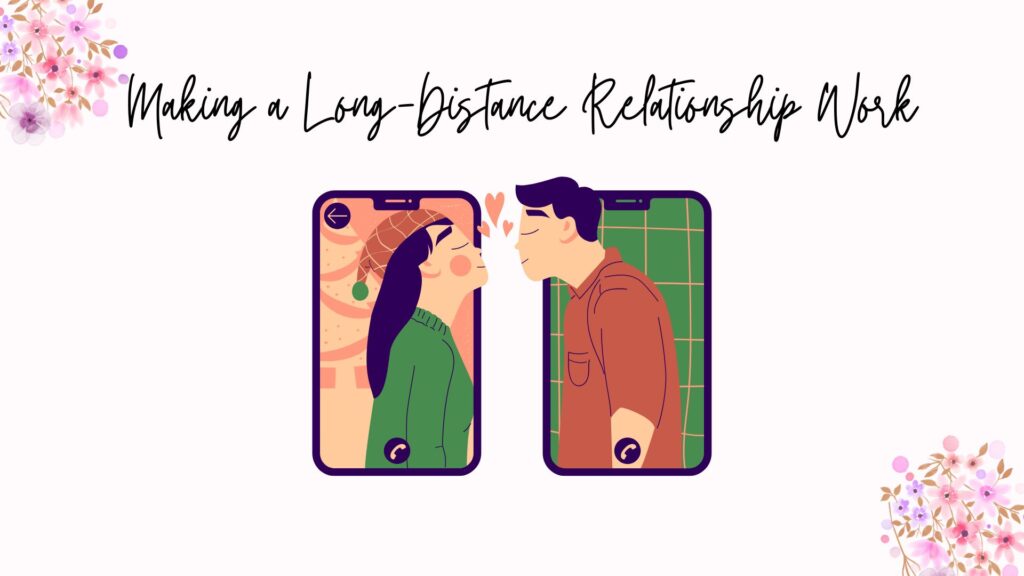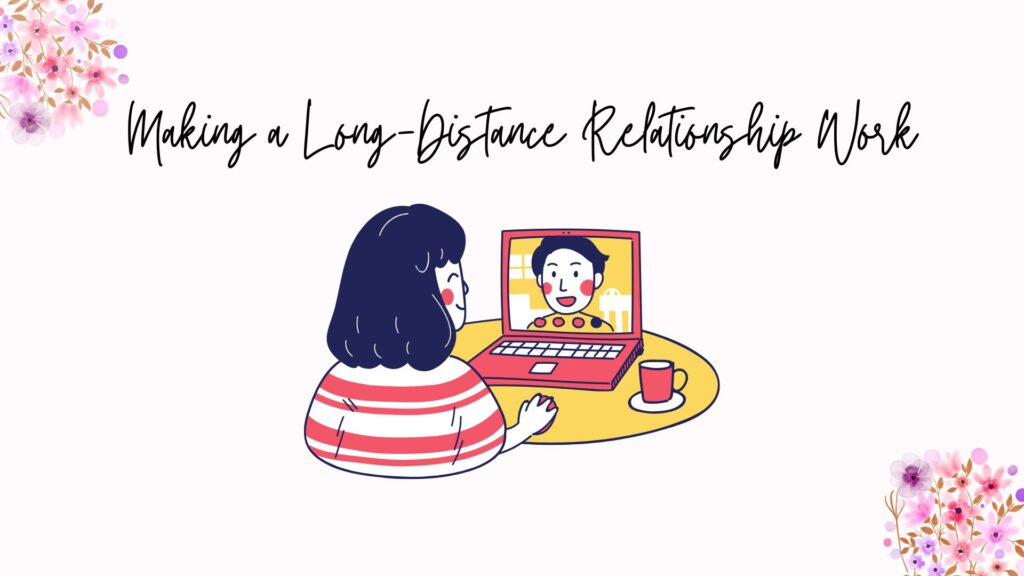In a previous article, we had given tips on how to communicate in your relationship. This article provides insight into how to make a long-term relationship work; saving it from fizzling out and keeping your love alive despite the distance.
The “Left-behind Wives”
Long-distance relationships (LDRs) are no longer uncommon in today’s interconnected world. There is a specific phenomenon called “Left-behind wives” in India. This refers to women who remain in their villages while their husbands migrate to urban areas for work, often leaving them to manage the household and other responsibilities alone, facing challenges like increased workload, social isolation, and economic insecurity due to their husband’s absence. It is prevalent in many parts of India due to widespread labour migration. Most often, husbands migrate to cities or other regions for better-paying jobs, leaving their wives to manage the family farm or household in their home village.
These women can experience loneliness, lack of social support, and difficulties in decision-making without their husbands present. Left-behind wives often take on additional responsibilities like managing finances, childcare, and farm labour, leading to stress and health concerns. Due to their isolated situation, they may face increased vulnerability to exploitation or abuse. The issue of left-behind wives is particularly prevalent in states like Bihar, Uttar Pradesh, and certain regions of southern India where male migration is high.
From the late 20th century, left-behind wives are no longer a rural phenomenon. There are skilled and semi-skilled women who migrate to countries like Israel and Australia while their spouses remain in India to take care of the family. Skilled and professional men migrate to other countries or states for better prospects while their educated and often working wives stay in their hometowns or cities. So, how do these LDRs work?
Making a Long-Distance Relationship Work
There are certain steps that a couple can take in the modern world to enhance and retain their relationship.
1. They Prioritise Communication: The Lifeline of Love
In a country as diverse as India, where festivals like Diwali, Holi, and Eid bring people together, being apart during these times can feel isolating. To bridge the gap, couples set a regular communication schedule that works for both of them. For instance, Rajat and Shahana, a couple separated by work commitments between Mumbai and Delhi, make it a point to video call every evening. “We share stories of our day, from the chaos of local trains to the aroma of street food, making us feel included in each other’s lives,” said Rajat, a customs official.
Use texts, voice notes, and even handwritten letters. Imagine receiving a letter from your partner, sealed with a bindi or a sprig of mogra, evoking the charm of old-world romance. Share your feelings openly. If you’re missing a family gathering or a festival, let your partner know. Vulnerability strengthens emotional bonds.

Making a long-distance relationship work. Created using Canva
2. They Build Trust: The Foundation of Togetherness
Trust is the cornerstone of any relationship, especially in a long-distance one. Trust your partner and avoid letting insecurities take over. If you promise to call at a certain time, stick to it. Small acts of consistency build trust over time. Discuss what’s acceptable and what’s not. For example, if one of you is uncomfortable with late-night outings, address it openly.
3. They Stay Emotionally Connected: Sharing Lives Across Miles
In India, where joint families and close-knit communities are the norm, staying emotionally connected is crucial. Share your daily experiences, from the taste of your morning chai to the sound of monsoon rains. Send care packages with regional delicacies, like Kolkata’s rosgolla or Hyderabad’s pootharekulu. “My dad, who worked in the Gulf, used to send goodies with his co-workers for us, whenever one of them was coming to Kozhikode,” remembered Saira, a graduate student. Acknowledge festivals, anniversaries, and birthdays together, even if it’s through a video call. Light diyas together during Diwali or exchange Christmas gifts virtually.
4. They Plan Visits: Creating Memories Together
Nothing beats the joy of meeting in person. Plan visits to each other’s cities and explore local attractions. “I used to visit my husband, a naval officer, stationed in the Andamans. My visit would be short, 3-4 days at most. Getting away from family responsibilities mid-semester used to keep me sane,” explained Babitha, a retired college professor from Pune. Sometimes, work or family commitments may disrupt plans. Stay patient and reschedule when needed.
5. They Focus on the Positives: Turning Distance into Strength
Distance can be an opportunity for personal growth. Use the time apart to pursue your passions, whether it is learning a new language, cooking traditional recipes, or mastering yoga. “I remember my mom joined a cooking class when we were kids and dad was working in Karwar. She used to surprise him with her new recipes when he came for the holidays,” said Nimisha, a graphic artist from Belur. Remind yourselves of the end goal—being together. Visualise your future, perhaps a cosy home in the hills of Darjeeling or a bustling flat in Chennai.
6. They Maintain Independence: Growing Together While Apart
While staying connected is important, it is equally vital to maintain your individuality. Pursue hobbies, spend time with friends, and focus on your career. “I had to take care of my in-laws. I was also busy with church activities and another NGO I was helping out with. I knew if I did not stay busy, I would be depressed with all the responsibilities at home,” mentioned Lata, a homemaker from Bengaluru.
7. They Address Challenges Head-On: Navigating Storms Together
Every relationship faces challenges, and LDRs are no exception. Be patient and address issues as they arise. If needed, talk to a trusted friend or mentor. In India, where elders often play a guiding role, their wisdom can be invaluable. “When the kids fell sick, he wouldn’t be home to take them to the hospital. Luckily, my brother-in-law’s family stayed close. They would help to take the kids to the doctor and with other emergencies,” mentioned Jyothirmayi, a bank officer in Meerut.
8. They Plan for the Future: Building a Shared Vision
Discuss your long-term goals and create a timeline for closing the distance. Whether it’s moving to the same city or starting a family, having a plan provides direction and hope.
9. They Use Technology to Their Advantage: Bridging the Gap
In a tech-savvy country like India, use apps and platforms to stay connected. Watch movies together on Netflix Party, play online games, or take virtual tours of heritage sites like the Taj Mahal. “During COVID-19, I used to play online Solitaire with my cousins. The regular gaming session kept all of us sane,” mentioned Malathy, a homemaker from Coimbatore.
10. They Take Care of Themself: Nurturing Well-Being
Self-care is essential. Practice mindfulness, stay active, and maintain a healthy lifestyle. Remember, a happy you contribute to a happy relationship.

Conclusion
Long-distance relationships may be challenging, but with effort, trust, and a sprinkle of creativity, they can flourish. In a country as vibrant and diverse as India, where love stories are often intertwined with tradition and culture, distance becomes just another chapter in your journey together. As the saying goes, “Dooriyan toh sirf mann ki hoti hain, dilon ki nahi” (Distances are only of the mind, not of the heart). So, stay committed, communicate openly, and let your love transcend miles.
For more such tips on maintaining relationships and meeting your perfect match, download the Rematch app.
References
Jain, Purnima, and N. Jayaram. “The Intimate Subsidies of Left-behind Women of Migrant Households in Western India.” Gender, Place & Culture 30, no. 5 (2022): 638-656.
Lei, Lei, and Sonalde Desai. “Male Out-Migration and the Health of Left-Behind Wives in India: The Roles of Remittances, Household Responsibilities, and Autonomy.” Social Science & Medicine 280 (2021): 113982.
Jain, Mahima. “No One Knows About Me: India’s ‘Left-Behind’ Women.” Article-14, December 4, 2020. https://www.article-14.com/post/no-one-knows-about-me-india-s-left-behind-women.
Koirala, Saroj. “Empowering Absence? Assessing the Impact of Transnational Male Out-Migration on Left-behind Wives.” Social Sciences 12, no. 2 (2023): 80. https://doi.org/10.3390/socsci12020080.

